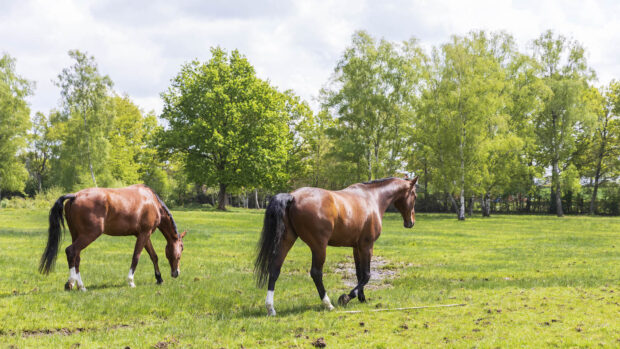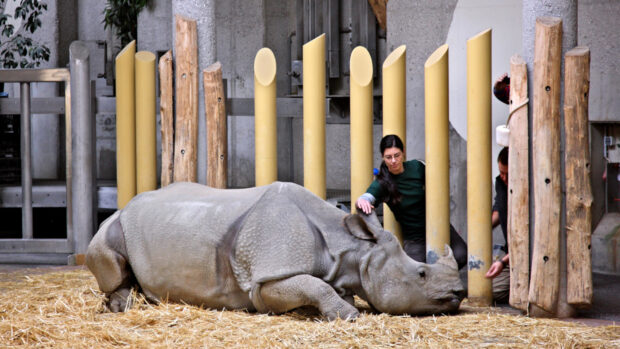The more relaxed horses are, the better they can learn new tasks, a study has found, “tentatively demonstrating that arousal has critical importance for learning”.
Scientists at Nottingham Trent University looked into how level of arousal in horses – the extent to which they might be excited or stressed for instance – affected performance in a cognitive task.
For the study, published in Applied Animal Behaviour Science, the researchers measured physiological markers of arousal, including heart rate variability and eye temperature, while horses were resting and during learning.
A group of 20 horses was given a choice of two targets, and given a food reward when they picked the correct one. Once they had learned to pick the right target, the task was changed so the horses had to pick the other one for the reward.
“Horses who had lower arousal, at rest and during learning, performed significantly better in the cognitive challenge, the team found,” a spokesman for the university said.
“Horses that did best in the task also showed an increase in left-eye temperature, and this was a significant predictor of performance.”

Taking a horse’s eye temperature
The researchers suggested that this temperature may have risen owing to increased blood flow to the left hemisphere of the brain, which is responsible for learning targeted responses to stimuli and feeding behaviour.
“The team argues that, as well as revealing that horses which are more relaxed perform better at tasks, their study demonstrates the use of physiological markers to predict how individual horses might learn,” the spokesman said.
Lead researcher Louise Evans added: “We regularly expect domesticated horses to learn different and complex behavioural responses as part of their working roles.
“In their day-to-day lives, horses require behavioural flexibility, the ability to adapt to changing environments, such as different riders and handlers. However, we also need horses to have excellent cognitive control so that we can safely rely on them to give consistent responses to important commands such as ‘slow down’ or ‘stop’.
“This delicate balance between flexibility and control is what makes horses such good teammates. However, when things go wrong there can be dangerous consequences, so it’s vital that we understand how horses learn and can better predict their learning performance.
“This study has really helped aid our understanding to predict how well individual horses learn – and more relaxed horses clearly learn better. It’s important for us to recognise the impact that arousal in the home or training environment can have on horses’ learning.”
Ms Evans added that the potential evidence of left-hemisphere activity by measuring eye temperatures was “fascinating”.
“This requires further investigation but, if a link can be demonstrated, this means we can for the first time measure hemispheric activity non-invasively and in real time,” she said.
You might also be interested in:

Scientists aim to identify ‘spooky’ genes in new equine research

Riders’ search for ‘true connection’ with their horses may not always be positive

Subscribe to Horse & Hound magazine today – and enjoy unlimited website access all year round
Horse & Hound magazine, out every Thursday, is packed with all the latest news and reports, as well as interviews, specials, nostalgia, vet and training advice. Find how you can enjoy the magazine delivered to your door every week, plus options to upgrade your subscription to access our online service that brings you breaking news and reports as well as other benefits.





